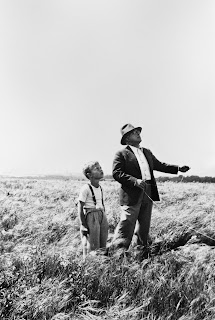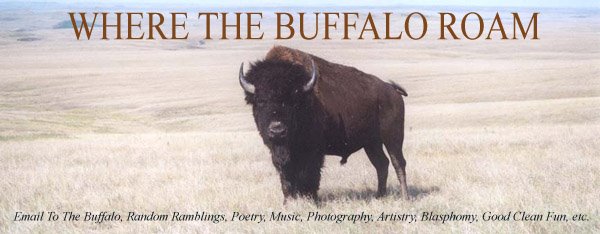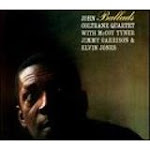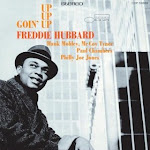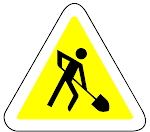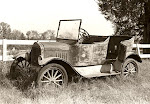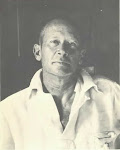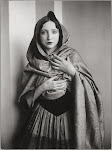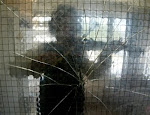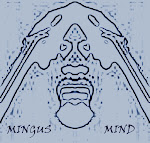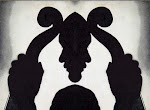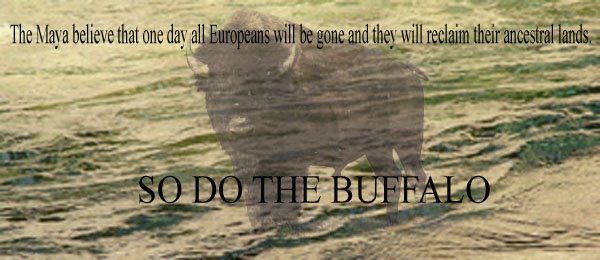When I woke up to the fact that as far as the scheme of things goes I was less than dirt I really became quite happy. I quickly lost all sense of responsibility. And if it weren’t for the fact that my friends got tired of lend
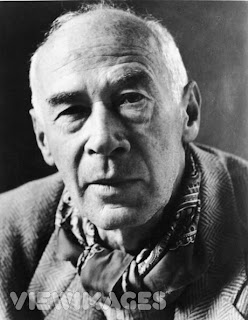
ing me money I might have gone on indefinitely pissing the time away. The world was like a museum to me; I saw nothing to do but to eat into this marvelous chocolate layer cake which the men of the past had dumped into our hands. It annoyed everybody to see the way I enjoyed myself. Their logic was that art was beautiful, oh yes, indeed, but you must work for a living and then you will find out that you are too tired to think about art. But it was when I threatened to add a layer or two on my own account to this marvelous chocolate layer cake that they blew up on me. That was the finishing touch. That meant I was definitely crazy. First I was considered to be a useless member of society; then for a time I was found to be a reckless, happy-go-lucky corps with a tremendous appetite; now I had become crazy.
(Listen, you bastard, you find yourself a job…we’re through with you!) In a way it was refreshing, this change of front. I could feel the wind blowing through the corridors. At least “we” were no longer becalmed. It was war, and as a corps I was just fresh enough to have a little fight left in me. War was revivifying. War stirs the blood. It was in the midst of the world war, which I had forgotten about, that this change of heart took place. I got myself married overnight, to demonstrate to all and sundry that I didn’t give a fuck one way or the other. . Getting married was O.K. in their minds. I remember that, on the strength of the announcement, I raised five bucks immediately. My friend MacGregor paid for the license and even paid for the shave and haircut which he insisted I go through in order to get married. They said you couldn’t go without being shaved; I didn’t see any reason why you couldn’t get hitched up without a shave and haircut, but since it didn’t cost me anything I submitted to it. It was interesting to see how everybody was eager to contribute something to our maintenance. All of a sudden, just because I had shown a bit of sense, they came flocking around us – and couldn’t they do this and couldn’t they do that for us? Of course the assumption was that now I would surely be going to work, now I would see that life is a serious business. It never occurred to them that I would let my wife work for me. I was really very decent to her in the beginning. I wasn’t a slave driver. All I asked for was carfare – to hunt for the mythical job – and a little pen money for cigarettes, movies, et cetera. The important things, such as books, music albums, gramophones, porterhouse steaks and such like I found that we could get on credit, now that we were married. The installment plan had been invented expressly for guys like me. The down payment was easy – the rest I left to Providence. One has to live, they were always saying. Now, by God, that’s what I said to myself –
One has to live! Live first and pay afterwards. If I saw an overcoat I liked I went in and bought it. I would buy it a little in advance of the season too, to show that I was a serious-minded chap. Shit, I was a married man and soon I would probably be a father – I was entitled to an overcoat at least, no? And when I had the overcoat I thought about stout shoes to go with it – a pair of thick cordovans such as I had wanted all my life but could never afford. And when it grew bitter cold and I was out looking for the job I used to get terribly hungry sometimes – it’s really healthy going out like that day after day prowling around the city in rain and snow and wind and hail – and so now and then I’d drop in to a cozy tavern and order myself a juicy porterhouse steak with onions and french fried potatoes. I took out life insurance and accident insurance too – it’s important, when you’re married, to do things like that, so they told me. Supposing I should drop dead one day – what then? I remember the guy telling me that, in order to clench his argument. I had already told him I would sign up, but he must have forgotten it. I had said, yes, immediately, out of force of habit, but as I say, he had evidently overlooked it – or else it was against the code to sign a man up until you had delivered the full sales talk. Anyway, I was just getting ready to ask him how long it would take before you could make a loan on the policy when he popped the hypothetical question:
Supposing you should drop dead one day – what then? I guess he thought I was a little off my nut the way I laughed at that. I laughed until the tears rolled down my face. Finally he said – “I don’t see that I said anything funny.” “Well,” I said, getting serious for a moment, “take a look at me. Now tell me, do you think I’m the sort of fellow who gives a fuck what happens once he is dead?” He was quite taken aback by this, apparently, because the next thing he said was: “I don’t think that’s a very ethical attitude, Mr. Miller. I’m sure you wouldn’t want your wife to…” “Listen,” I said, “supposing I told you I don’t give a fuck what happens to my wife when I die – what then?” And since this seemed to injure his ethical susceptibilities still more I added for good measure – “As far as I’m concerned you don’t have to pay the insurance when I croak – I’m only doing this to make you feel good. I’m trying to help the world along, don’t you see? You’ve got to live, haven’t you? Well, I’m just putting a little food in your mouth, that’s all. If you have anything else to sell, trot it out. I buy anything that sounds good. I’m a buyer not a seller. I like to see people looking happy – that’s why I buy things. Now listen, how much did you say that would come to per week? Fifty-seven cents? Fine. What’s fifty-seven cents? You see that piano – that comes to about thirty-nine cents a week, I think. Look around you…everything you see costs so much a week. You say,
if I should die – what then? Do you suppose I’m going to die on all these people? That would be a hell of a joke. No, I’d rather have them come and take the things away – if I can’t pay for them, I mean…”
And always, there was Henry. I would consult him like a prophet. I would read his words and wonder why I couldn’t find the courage to adopt his optimism, his powerful sense of self, even while drifting through the horseshit of daily life in the streets. Even while being confronted by the insanity of the work-a-day world.
I knew very well I’d have to make a break one day; I knew very well I was pissing my time away. But I knew also that there was nothing I could do about it –
yet. Something had to happen; something big, something that would sweep me off my feet. All I needed was a push, but it had to be some force outside my world that could give me the right push, that I was certain of. I couldn’t eat my heart out because it wasn’t in my nature. All my life things had worked out all right –
in the end. It wasn’t in the cards for me to exert myself. Something had to be left to Providence – in my case a whole lot. Despite all the outward manifestations of misfortune or mism

anagement I knew that I was born with a silver spoon in my mouth. And with a double crown, too. The external situation was bad, admitted – but what bothered me was more than the internal situation. I was really afraid of myself, of my appetite, my curiosit
y, my flexibility, my permeability, my malleability, my geniality, my powers of adaption. No situation in itself could frighten me: I somehow always saw myself sitting pretty, sitting inside a buttercup, as it were, and sipping the honey. Even if I were flung in jail I had a hunch I’d enjoy it. It was because I knew how not to resist, I suppose. Other people wore themselves out tugging and straining and pulling; my strategy was to float with the tide. What people did to me didn’t bother me nearly so much as what they were doing to others or to themselves. I was really so damned well off inside that I had to take on the problems of the world. That’s why I was in a mess all the time. I wasn’t synchronized with my own destiny, so to speak. I was trying to live out the world destiny. If I got home of an evening, for instance, and there was no food in the house, not even for the kid, I would turn around and go looking for the food. But what I noticed about myself, and that was what puzzled me, was that no sooner outside and hustling for the grub than I was back at the
Weltanschauung again. I didn’t think of food for us exclusively, I thought of food in general, food in all its stages, everywhere in the world at that hour, and how it was gotten and how it was prepared and what people did if they didn’t have it and how maybe there was a way to fix it so that everyone would have it when they wanted it and no more time wasted on such an idiotically simple problem. I felt sorry for the wife and kid, sure, but I also felt sorry for the Hottentots and the Australian bushmen, not to mention the starving Belgians and the Turks and the Armenians. I felt sorry for the human race, for the stupidity of man and his lack of imagination. Missing a meal wasn’t so terrible – it was the ghastly emptiness of the street that disturbed me profoundly. All those bloody houses, one like another, and all so empty and cheerless looking. Fine paving stones under foot and asphalt in the middle of the street and beautifully-hideously-elegant brownstone stoops to walk up, and yet a guy could walk about all day and all night on this expensive material and be looking for a crust of bread. That’s what got me. The incongruousness of it. If one could only dash out with a dinner bell and yell, “Listen, listen, people, I’m a guy what’s hungry. Who wants shoes shined? Who wants the garbage brought out? Who wants the drainpipes cleaned out?” If you could only go out into the street and put it to them clear like that. But no, you don’t dare to open your trap. If you tell a guy in the street that you are hungry you scare the shit out of him, and he runs like hell. That’s something I never understood. I don’t understand it yet. The whole thing is so simple – you just say Yes when someone comes up to you. And if you can’t say Yes you can take him by the arm and ask some other bird to help out. Why you have to don a uniform and kill men you don’t know, just to get that crust of bread, is a mystery to me. That’s what I think about, more than about whose trap it’s going down or how much it costs. Why should I give a fuck about what anything costs? I’m here to live, not to calculate. And that’s what the bastards don’t want you to do – to live! They want you to spend your whole life adding up figures. That makes sense to them. That’s reasonable. That’s intelligent. If I were running the boat things wouldn’t be so orderly perhaps, but it would be gayer, by Jesus! You wouldn’t have to shit in your pants over trifles. Maybe there wouldn’t be macadamized roads and streamlined cars and loudspeakers and gadgets of a million billion varieties, maybe there wouldn’t even be glass in the windows, maybe you’d have to sleep on the ground, maybe there wouldn’t be French cooking and Italian cooking and Chinese cooking, maybe people would kill each other when their patience was exhausted and maybe nobody would stop them because there wouldn’t be any jails or any cops or judges, and there certainly wouldn’t be any cabinet ministers or legislatures because there wouldn’t be any goddamned laws to obey or disobey, and maybe it would take months or years to trek from place to place, but you wouldn’t bear a number and if you wanted to change your name every week you could do it because it wouldn’t make any difference since you wouldn’t own anything except what you could carry around with you and why would you want to own anything when everything would be free?
I admired and was inspired by Henry’s sense of self confidence, yet I found none of that within myself. If I just had the guts to be my true self, to live to the hilt, to fill my life with joy and love and inspiration and self respect. But I hovered between indecision and disgust, and took the route of least resistance whenever I could. In short, I sold myself out to the corporate world, the world of acceptance, what I imagined to be the expectations of others. Henry was waiting for something to push him over the edge, something he knew was coming in its own good time. He said he was afraid of his powers of adaption. I could understand that because I was a victim of mine. I was avoiding the push, frightened of being out in the streets . I lived in the shadow of my true self. Ten years passed before it all started to turn around.
Everything I had written before was museum stuff, and most writing is still museum stuff and that’s why it doesn’t catch fire, doesn’t inflame the world. I was only a mouthpiece for the ancestral race which was talking through me; even my dreams were not authentic, not bona fide Henry Miller dreams. To sit still and think one thought which would come up out of me, out of the life buoy, was a Herculean task. I didn’t lack thoughts nor words nor the power of expression – I lacked something much more important: the lever which would shut off the juice. The bloody machine wouldn’t stop, that was the difficulty. I was not only in the middle of the current but the current was running through me and I had no control over it whatever.
I remembe

r the day I brought the machine to a dead stop and how the other mechanism, the one that was signed with my own initials and which I had made with my own hands and my own blood slowly began to function. I had gone to the theater nearby to see a vaudeville show; it was the matinee and I had a ticket for the balcony. Standing in line in the lobby, I already experienced a strange feeling of consistency. It was as though I were coagulating, becoming a recognizable consistent mass of jelly. It was like the ultimate stage in the healing of a wound. I was at the height of normality, which a very abnormal condition. Cholera might come and blow its foul breath in my mouth – it wouldn’t matter. I might bend over and kiss the ulcers of a leprous hand, and no harm could possibly come to me. There was not just a balance in this constant warfare between health and disease, which is all that most of us may hope for, but there was a plus integer in the blood which meant that, for a few moments at least, disease was completely routed. If one had the wisdom to take root in such a moment, one would never again be ill or unhappy or even die. But to leap to this conclusion is to make a jump which would take one back further than the old stone age. At that moment I wasn’t even dreaming of taking root; I was experiencing for the first time in my life the meaning of the miraculous. I was so amazed when I heard my own cogs meshing that I was willing to die then and there for the privilege of the experience.
What happened was this…As I passed the doorman holding the torn stub in my hand the lights were dimmed and the curtain went up. I stood a moment slightly dazed by the sudden darkness. As the curtain slowly rose I had the feeling that throughout the ages man had always been mysteriously stilled by this brief moment which preludes the spectacle. I could feel the curtain rising in man. And immediately I also realized that this was a symbol which was being presented to him endlessly in his sleep and that if he had been awake the players would never have taken the stage but he, Man, would have mounted the boards. I didn’t think this thought – it was a realization, as I say, and so simple and overwhelmingly clear was it that the machine stopped dead instantly and I was standing in my own presence bathed in a luminous reality. I turned my eyes away from the stage and beheld the marble staircase which I should take to go to my seat in the balcony. I saw a man slowly mounting the steps, his hand laid across the balustrade. The man could have been myself, the old self which had been sleepwalking ever since I was born. My eye didn’t take in the entire staircase, just the few steps which the man had climbed or was climbing in the moment that I took it all in. The man never reached the top of the stairs and his hand never removed from the balustrade. I felt the curtain descend, and for another few moments I was behind the scenes moving amidst the sets, like the property man suddenly roused from his sleep and not sure whether he is still dreaming or looking at a dream which is being enacted on the stage. It was as fresh and green, as strangely new as the bread and cheese lands which the Biddenden maidens saw every day of their long life joined at the hips. I saw only that which was alive! The rest faded out in a penumbra. And it was in order to keep the world alive that I rushed home without waiting to see the performance and sat down to describe the little patch of staircase which is imperishable.
I drifted through the dream and what was called reality freely, seamlessly, barely knowing who I was from one moment to the next. I was at The Bank in the three-piece suit leading a training session for my twenty-two district managers and their assistants, explaining the differences between telling someone to do something and enticing them to do it of their own accord, all the while eyeing the redheaded manager from Salinas with the enticing orange lips. Or I was in my living room watching the first lunar landing with the children, passing the joint on to Curtis or Goodall. Or perched high up in a tree up on Mt. Tamalpais twirling under LSD watching the unwary hikers passing below on their way to the summit like an owl in a nest. Or I was catching a quickie on my lunch break with Slattery’s girlfriend Jan in another lady’s apartment to which I had a key. I could be anyone or everyone all at the same time and went in and out of the endless set of personas without a second, or even a first, thought. It was madness over which I had no control.
I was on the bus of an evening on my way back across the bridge into Marin county. My day had been deadening and I was empty, mindless, as lost as a prisoner on Alcatraz island, caged within my own fears and inertia. Sitting next to me was a woman of, say, thirty-five, perhaps a wife and mother, perhaps on her way back to the nest after another endless day of mindless labor, and perhaps she was feeling somewhat as was I. We rocked with the motion of the bus reading our books or looking straight ahead. There had been no recognition of one another though I was aware of her just as I was aware of every woman that passed through my radar. At one point our knees touched from the motion of the bus. Neither of us moved and the contact continued. She was reading her book. I was looking straight ahead. Was she aware of the contact? I pressed ever so slightly against her to test the waters. No movement from her. Not a sign. I raised my leg slowly up and down. Still she did not move away from the contact. My breath was getting short and my vision blurred. I pressed gently against her leg and rubbed with my knee. Her book remained open but I could see through the corner of my eye that she was not reading but staring blindly at the page. The bus rocked on and I closed my eyes, breathing short deep breaths. I no longer tried to see what she was doing or if she was aware of the contact, and I slipped into a dream. I felt the warmth of her leg and the blood running through her veins and the pulse of her heart. I turned to her in my dream and pulled her into my arms, holding her close and warm as the bus swayed gently through the clouds. For an endless moment we held one another, strangers externally, but lovers deep within. She was a goddess and I a god in a golden land near the rising sea. All else ceased to exist; we had left the world as we had once known it and now swayed peacefully through our dream. Then the bus stopped and she rose to leave, slipping past me to the aisle where she turned and looked down into my face. She held my stare for a moment and with a small smile said, “Thank you”, and then was gone. I could not see, I could not think. I did not want to return to this reality and tried to will myself back into the dream, but she was gone, and I was alone once again in the three-piece suit riding the bus along the familiar corridors past the all too familiar schools and markets and gas stations of my life. Like two exotic caged birds we had reached through the bars, and for a moment touched one another, transforming our work-a-day lives into a moment on the primitive slopes of paradise. It was a small miracle in itself, brief, deep, as magical as a dive into a cool mountain lake on a hot summer day: brief, refreshing, unforgettable.
The ovarian world is a product of a life rhythm. The moment a child is born it becomes part of a world in which there is not only the life rhythm but the death rhythm. The frantic desire to live, to live at any cost, is not a result of the life rhythm within us, but the death rhythm. There is not only no need to keep life at any price, but, if life is undesirable, it is absolutely wrong. This keeping oneself alive, out of a blind urge to defeat death, is in itself a means of sowing death. Everyone who has not fully accepted life, who is not incrementing life, is helping to fill the world with death. To make the simplest gesture with the hand can convey the utmost sense of life; a word spoken with the whole being can give life. Activity in itself means nothing; it is often a sign of death. By simple external pressure, by force of surroundings and example, by the very climate which activity engenders, one can become a part of a monstrous death machine, such as America, for example. What does a dynamo know of life, of peace, of reality? What does any individual American dynamo know of the wisdom and energy, of the life abundant and external possessed by a ragged beggar sitting under a tree in the act of meditation? What is energy? What is life? One has only to read the stupid twaddle of the scientific and philosophic textbooks to realize how less than nothing is the wisdom of these energetic Americans. Listen, they had me on the run, these crazy horsepower fiends; in order to break their insane rhythms, their death rhythms, I had to resort to a wave length which, until I found the proper sustenance in my bowels, would at least nullify the rhythm they had set up. Certainly I did not need the grotesque, cumbersome, antediluvian desk which I had installed in the parlor; certainly I didn’t need twelve empty chairs placed around it in a semicircle; I needed only elbow room in which to write and a thirteenth chair which would take me out of the zodiac they were using and put me in a heaven beyond heaven. But when you drive a man almost crazy and when, to his own surprise perhaps, he finds that he still has some resistance, some powers of his own, then you are apt to find such a man acting very much like a primitive being. Such a man is apt not only to become stubborn and dogged, but superstitious, a believer in magic and a practicer of magic. Such a man is beyond religion – it is his religiousness he is suffering from. Such a man becomes a monomaniac, bent on doing one thing only and that is to break the evil spell which has been put upon him. Such a man is beyond throwing bombs, beyond revolt; he wants to stop reacting, whether inertly or ferociously. This man, of all men on earth, wants the act to be a manifestation of life. If, in the realization of his terrible need, he begins to act regressively, to become unsocial, to stammer and stutter, to prove so utterly unadapted as to be incapable of earning a living, know that this man has found his way back to the womb and source of life and that tomorrow, instead of the contemptible object of ridicule which you have made of him, he will stand forth as a man in his own right and all the powers of the world will be of no avail against him.
Out of the crude cipher with which he communicates from his prehistoric desk with the archaic men of the world a new language b

uilds up which cuts through the death language of the day like wireless through a storm. There is no magic in this wave length any more than there is magic in the womb. Men are lonely and out of communication with one another because all their inventions speak only of death. Death is the automation which rules the world of activity. Death is silent, because it has no mouth. Death has never expressed anything. Death is wonderful too –
after life. Only one like myself who has opened his mouth and spoken, only one who has said Yes, Yes, Yes, and again Yes! can open wide his arms to death and know no fear. Death is a reward, yes! Death as a result of fulfillment, yes! Death as a crown and shield, yes! But not death from the root, isolating men, making them bitter and fearful and lonely, giving them fruitless energy, filling them with a will that can only say No! The first word any man writes when he has found himself, his own rhythm, which is the life rhythm, is Yes! Everything he writes thereafter is Yes, Yes, Yes – Yes in a thousand million ways. No dynamo, no matter how huge – not even a dynamo of a hundred million dead souls – can combat one man saying Yes!
My life was a tropical storm on a path of destruction. Everything I touched with love crumbled in my crude hands. I possessed the will of a great wind, bending ancient and solid trees until they broke with a shattering scream. The will for life that had been suppressed within me blew forth now, leveling my landscape and leaving my world in a shambles of scattered lives. It was useless for me to stand against this power and I surrendered completely, letting the storm carry me where it would. I was a demon, and I accepted my fate.
The job at The Bank began to unravel after nearly fifteen years of building a “successful” career. I found that climbing down the ladder to success was much more painful and difficult than climbing up. I drank martinis for lunch, tossed my in-box into the trash and wandered into the streets. Everyone was busily scurrying about at First and Market, isolated from one another in the world of duty. I roamed down to the docks and listened to the oily bay waters slap against the planks and the seagulls screech. In a lunch packed bar I would order a beer and then walk out absentmindedly, leaving the beer on the counter and the bartender eyeing me suspiciously. I belonged nowhere, and nowhere was where I was headed.
The break came quick and clean as a death wish. After a late night with a girlfriend, I came home empty and defeated. The children were sleeping innocently in their beds and I sat with them for a while watching their breathing and marveling at their beauty and peace of mind. The wife was furious, naturally, fuming into a four-olive vodka martini. “I want you out!”, she spat as I entered the kitchen. Simple as that, the words neither one of us could previously bring ourselves to say. “This is the end!”, she added, and it was. I had no fight; I had no will. She could have told me to dive off the Golden Gate Bridge and I would have done so without a whimper. This was the end; the end of the day-job-suburban-lifestyle experiment, in most ways, a complete and utter failure. The children were precious and vulnerable and needed their father in their lives, but staying and continuing the insanity would have made things for them even worse. This was the end.
As daylight dawned that morning I packed up two old ratty suitcases with some underwear, a few books, a shaver and a toothbrush. The rest was hers; the house, the car, the dog, and the five cats. She could keep the TV, the dishes, the washing machine and drier, the knick knacks, the photographs, the lawn furniture. I had no need of any of the stuff that had made up our insane lives. We drove the children to school telling them I was moving into The City and they could come and visit any time they wanted. She drove me across the bridge, too angry and broken to speak. On an impulse she suddenly pulled over on Van Ness and said, “Get out!”, and I did, and watched the old Volvo steam away forever. It was over. I found out years later that just at this moment Gene was driving by in his old blue VW bug and witnessed the whole scene. We laughed when he told me about it and I said, “You bugger, why didn’t you pick me up?” “The scene was complete in itself”, he answered, “I could see that it was a classic moment and I didn’t want to intrude.” There I stood on Van Ness Avenue with my two raggedy suitcases. I picked a direction and started walking. With each step my spirits lightened. It was a beautiful morning in The City and I had nowhere to go and nothing to do. The great wind in my spirit had quieted and the storm had abated. After a few blocks I was whistling the theme from the movie “The Bridge Over The River Kwai” and swinging the suitcases happily. And then, in a moment of gratitude, I sat the suitcases down, opened my arms to the new life that suddenly seemed so filled with beauty and promise, raised my head to the morning sun above and said with a joyful voice of gratitude, “Yes!”
.
.
